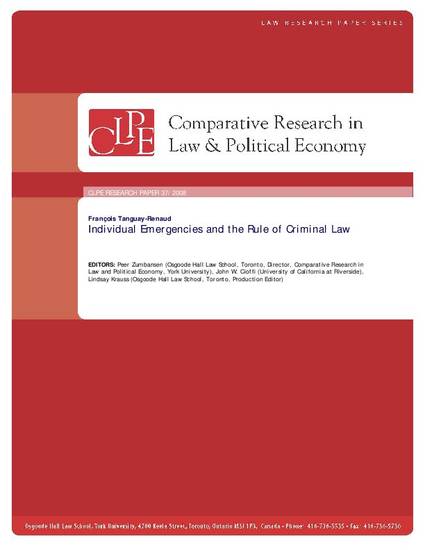
- authority,
- concept of morality,
- criminal law,
- delegation,
- Emergencies,
- excuses,
- Fletcher,
- Horder,
- individual emergencies,
- justifications,
- legal powers,
- normal justification thesis,
- permissions,
- private emergencies,
- probability,
- rationality,
- Raz,
- reasons,
- responsibility,
- risk,
- rule of law,
- Tadros
This is the draft of a paper initially presented in the Oxford Jurisprudence Discussion Group. The paper assesses the relationship between individual emergencies and criminal law in light of the ideal of the rule of law and Joseph Raz's thesis about the normal justification of authority. After sketching out the main theoretical positions on how criminal law ought to provide for its own potential failure in the face of private emergencies, I argue that it is only in the most extreme and generalized cases that its sole legitimate response is to disclaim all competence in favour of its subjects. Whereas, in other cases (the focus of the paper), the criminal law may not be able to provide legitimate ex ante guidance, it may still be able to preserve the legitimacy of its authority. It may do so by granting some practical latitude to its subjects confronted with individual emergencies to act in accordance with morality, and by vindicating their correct responses ex post facto. The argument rests on the premise, which I defend, that morality never lapses even in the face of emergencies and that, therefore, the criminal law can always expect its subjects to abide by it. I then go on to contrast justification and excusatory defences as means of providing moral latitude to individuals facing emergencies, and conclude by refuting the assumption that people typically act irrationally when confronted with emergencies.
Available at: http://works.bepress.com/francois_tanguay-renaud/24/
